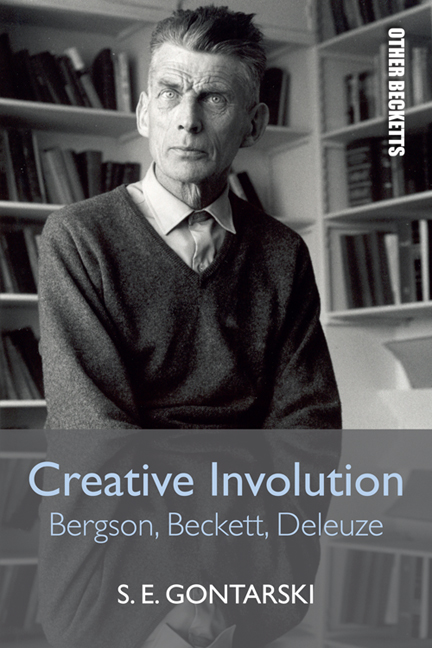Book contents
- Frontmatter
- Contents
- Dedication
- Other Becketts: Series Preface
- Abbreviations for Works
- Acknowledgements
- 1 ‘All the Dead Voices’: A Preface
- 2 ‘A Mixed Choir’ from The Ditch of Astonishment: An Introduction
- Anteriors
- Interiors
- 5 Towards a Creative Involution
- 6 ‘What it is to Have Been’: Movement, Multiplicity and Representation
- 7 Beyond the Shadow: Acts of Unceasing Creation
- 8 A Theatre of Deterritorialization and the Questions We Ask
- Posteriors
- Index
8 - A Theatre of Deterritorialization and the Questions We Ask
from Interiors
Published online by Cambridge University Press: 05 August 2016
- Frontmatter
- Contents
- Dedication
- Other Becketts: Series Preface
- Abbreviations for Works
- Acknowledgements
- 1 ‘All the Dead Voices’: A Preface
- 2 ‘A Mixed Choir’ from The Ditch of Astonishment: An Introduction
- Anteriors
- Interiors
- 5 Towards a Creative Involution
- 6 ‘What it is to Have Been’: Movement, Multiplicity and Representation
- 7 Beyond the Shadow: Acts of Unceasing Creation
- 8 A Theatre of Deterritorialization and the Questions We Ask
- Posteriors
- Index
Summary
[…] a rhizome is not amenable to any structural or generative model. It is a stranger to any idea of genetic axis or deep structure. […] A rhizome has no beginning or end; it is always in the middle, between things, interbeing, intermezzo. (Gilles Deleuze and Félix Guattari, A Thousand Plateaus (12, 25))
‘There's No Key’
One particularly telling, oft cited but rarely unpacked exchange is the (now) famous London meeting between Samuel Beckett and the eminent actor Ralph Richardson, the incident recounted by Beckett in a letter of 18 October 1954 to his American publisher, Barney Rosset, who would soon take on the additional responsibility of being Beckett's American theatrical producer as well:
had a highly unsatisfactory interview with SIR Ralph Richardson who wanted the low-down on Pozzo, his home address and curriculum vitae, and made the forthcoming of this and similar information the condition of his condescending to illustrate the part of Vladimir. Too tired to give satisfaction I told him that all I knew of Pozzo was in the text, that if I had known more I would have put it in the text, and that this was true also of the other characters. (Letters 2 507)
Beckett's citing the exchange so forcefully to Rosset may have constituted something of a pre-emptive warning as the American publication of Godot had just appeared (two years ahead of the British edition) and its American theatrical premiere was imminent, if delayed; the play would finally open in try out, ill advisedly, as it turned out, in Miami Beach, Florida on 3 January 1956. Beckett had rehearsed the Richardson vignette a few days Mary Manning Howe, telling her that Richardson ‘Wanted the low-down on Pozzo, his home address, family background and curriculum vitae’. He repeated the incident to Howe yet again on the same day he wrote Rosset, this time with an even stronger admonition: ‘He asked a lot of stupid questions I was too tired to answer. There are no answers to such questions but less tired I could have found some. […] he is not the man for the play, and I do not think that the W. E. [West End] is the place for it either’ (Letters 2 508, n. 1).
- Type
- Chapter
- Information
- Creative InvolutionBergson, Beckett, Deleuze, pp. 147 - 170Publisher: Edinburgh University PressPrint publication year: 2015



